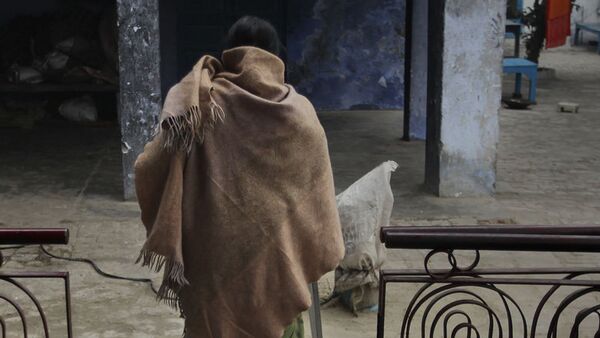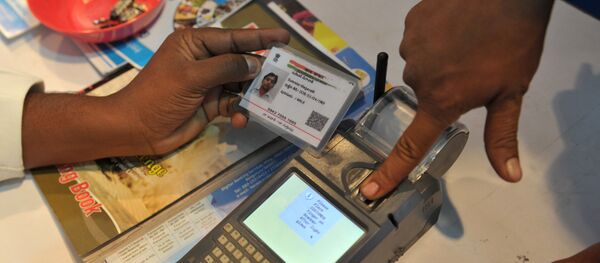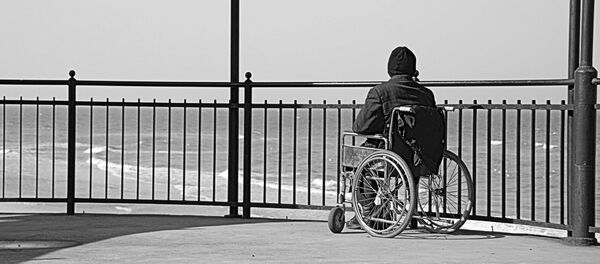New Delhi (Sputnik) — In India's southern state of Karnataka, a leprosy patient who has lost her fingers and eyesight to the debilitating disease, has been denied government subsidy as she failed to enrol herself with Aadhar — a unique identification number that is allocated to Indian citizens after capturing their biometric data that includes fingerprints and iris scan.
READ MORE: Trump's Decision on Jerusalem Restores Justice — Russia's Chief Rabbi
The 65-year-old woman, Sajida Begum has been living at the Leprosy Hospital in Magadi Road for the past one decade after her family abandoned her and she has been surviving on a $15-a-month pension provided by the government. The assistance given to her stopped three months ago as she was unable to receive an Aadhar card.
"I don't know where my daughter and son-in-law are. Nobody comes to see me. Please give me my money," Sajida Begum was quoted by the local media.
Activists working for civil rights say such stories are rampant in India and the government has given no heed to their requests to consider such cases sympathetically.
"Such cases are many and common. In the national capital of Delhi, we have come across several cases of denial of basic rights of citizens due to non-availability of Aadhar card but the government has failed to respond. We were forced to approach the court to bring relief to these victims of government's overzealous and inhuman enthusiasm to replace services with technology which may not always work on the ground," Annie Raja, general secretary of National Federation of Indian Women told Sputnik.
The unique identity card (UID) called Aadhar is a twelve digit identity number issued to each citizen in the country which was initiated by the Congress-led UPA government of Dr. Manmohan Singh but it was made mandatory by the Narendra Modi led BJP government after it came to power in 2014. The linking of Aadhar number to welfare schemes have been criticised by the civil rights groups and political opposition on many occasions.





